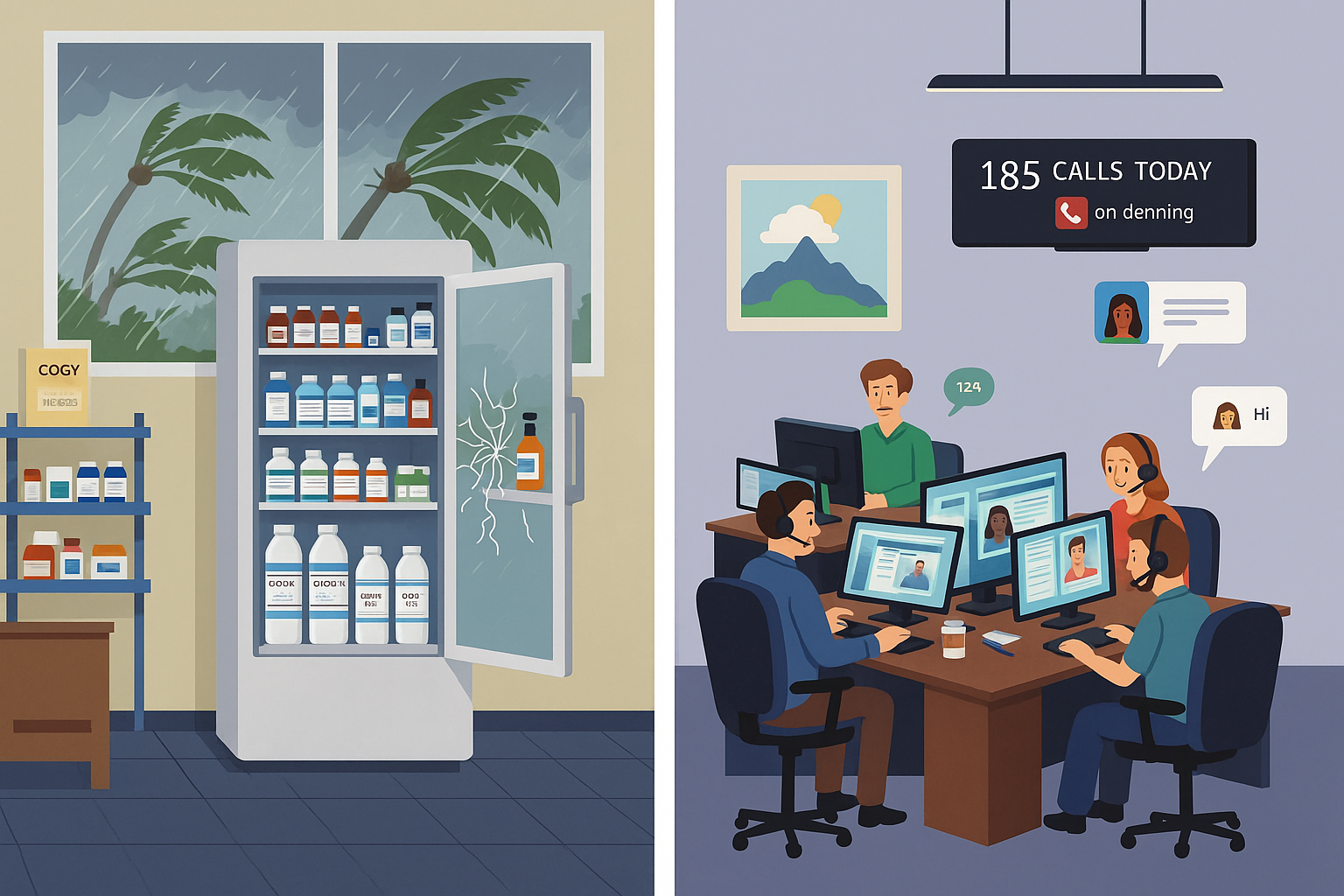The devastating impact of Cyclone Alfred in March 2025 left much of Queensland reeling. Beyond the visible damage: flooded roads, power outages, and damaged infrastructure, another, quieter crisis emerged: temperature excursions affecting the integrity of temperature sensitive medicines, vaccines, and medical devices.
From our internal data, the volume of Medical Information enquiries related to temperature excursions doubled during and after cyclonic events compared to the pre-cyclone period. This surge not only reflects the urgency of frontline needs during natural disasters, but also underscores the critical role Medical Information plays in safeguarding patient health. The ability to capture and analyse such data in real-time allows for strategic resource planning, targeted training, and proactive response development.
In such emergencies, the Medical Information team becomes a frontline responder, offering real-time access to stability data, manufacturer assessments, and risk evaluations that empower clinicians and pharmacists to make informed decisions. These services are often the difference between confidently administering a treatment or discarding critical stock unnecessarily.
Currently, pharmaceutical companies differ widely in how they respond to these enquiries. Some take a risk-based approach, using validated stability data to support certain excursions under controlled conditions and/or follow strict policy-driven protocols, often advising product disposal in the absence of specific excursion data.
While each approach has merit, this inconsistency can lead to confusion for healthcare professionals, delayed treatment decisions, or unnecessary wastage of critical medicines.
Best Practices for Managing Temperature Excursion Enquiries
To ensure timely and consistent responses during crises like Cyclone Alfred, pharmaceutical companies must establish and maintain robust best practices, including:
- Proactive Stability Data Repositories: Maintain up-to-date excursion stability data for all products, accessible to Medical Information teams.
- Clear Internal Escalation Pathways: Ensure Medical Information staff can rapidly consult with Quality, Regulatory Affairs, and Manufacturing when novel situations arise.
- Unified Messaging Frameworks: Develop standardised, non-promotional response templates that align with guidelines.
- Cross-Functional Training: Empower Medical Information teams to collaborate effectively with Pharmacovigilance and Quality Assurance functions.
The implementation of these systems leads to a significant enhancement in outcomes for our clients. It enables the provision of real-time reassurance to patients, pharmacists, and clinicians, ensures the safe and effective use of medicinal products, and contributes to the reduction of pharmaceutical waste during periods of crises.
Medical Information: Underutilised Yet Indispensable
Despite being readily accessible to patients, carers, and healthcare professionals, Medical Information remains an underutilised resource. It is a customer-facing function that provides up-to-date, accurate, and scientifically validated product information in response to unsolicited enquiries. This can directly support clinical decision-making and improve patient confidence, especially during uncertain times.
Documentation of these interactions supports patient safety surveillance, subject to audits by health authorities and global affiliates. Findings from these audits can trigger regulatory actions such as label changes, new safety warnings, or in extreme cases, product recalls.
A Trusted Partner Across the Region
For over 24 years, across Australia, New Zealand and Asia Pacific, Commercial Eyes has been entrusted with managing Medical Information service needs for pharmaceutical companies. Drawing on insights from approx. 40,000 enquiries a year, and now, robust internal analytics that track the real-time impact of natural disasters on information needs, we continue to evolve with the healthcare landscape, delivering quality and cost-effective advice and support.
Cyclone Alfred serves as a stark reminder: as climate events grow in frequency and intensity, Medical Information must not only be reactive, but strategically positioned as a pillar of patient safety, operational resilience, and data-driven decision-making.

